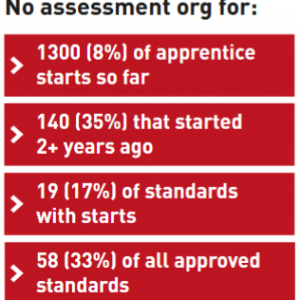Ofsted recently lauded the Grimsby Institute Group’s outcomes for 14- to 16-year-old learners as ‘outstanding’. Paul Thundercliffe, headteacher of the school they opened in 2015, explains how they approached the challenge
As 2012 drew to a close, the DfE announced that from September 2013 colleges rated good or better by Ofsted would be able to recruit 14-to 16-year-olds directly, without the need for a written agreement with a school or local authority.
The Grimsby Institute of Further and Higher Education always had good 14-16 provision in collaboration with schools. But although outcomes were strong, GIFHE never reaped the benefit of having those cohorts on roll.
Plans were drawn up, with two very important decisions made immediately. One, that the 14-16 provision would have its own secure site. Two, it would also have its own identity: thus, the Academy Grimsby was born.
Labour market data suggested that engineering and healthcare were the two main areas of growth, in an area scoring high on all key measures on the government’s indices of multiple deprivation.
We took a concept and ran with it
I took over as head in the January of 2015 and the first two terms were hard. We were running at a loss but slowly the 29 students who greeted me on my first day grew to 35, and then we recruited for the year after.
We had put a lot of stock in big, bold open events, but quickly learned word of mouth was a bigger seller.
One reason I took the job was the new performance measures. Progress 8 enables schools to focus their curriculum on individuals, playing to their strengths. In order to open a 14-16 direct entry provision, colleges had to offer maths, English, science, RE and vocational options. That hit seven out of the eight baskets immediately. Adding an experienced history teacher filled the lot.
The next thing GIFHE got absolutely right was offering the same pay and conditions as schoolteachers. If we were going to run it as a school then we needed to attract the right professionals for the academic aspect. The vocational side would be taught by lecturers from Grimsby Institute.
In September 2015 we added geography, Spanish and as a pathway digital and media.
What was most interesting was the spread of ability – students with high prior attainment were taught in the same engineering group as those who had struggled through school. Yet they all made progress and accessed the curriculum.
Our focus on inclusion, small class sizes and personalised teaching enabled TAG to achieve a Progress 8 score of +0.24 in 2016, the third highest in the LA. Indeed our maths Progress 8 score was the highest locally and in the top five per cent nationally.
But these outcomes are only part of the story. We took a concept and ran with it, evolving all the time. We listen to the students and their parents and give them the education they want.
September 2016 saw 160 new year 10s enter 13 new classrooms and labs, with performing arts now added to the BTEC roster. This cohort is as bright as any I have worked with, their appetite for good teaching and expansive learning is huge. We have another 200 starting in September.
I’ve realised that parents don’t just want academic guarantees or a vocational option. They want their children to have the currency of both. In an uncertain world, the more keys a young person has the more doors they are able to open.
So what is the secret? There isn’t one, but these are some of the key things we have got right that have helped us achieve our ‘outstanding’ rating:
- Employing staff on teachers’ pay and conditions
- Employing staff with more than one subject specialism
- Having one dedicated site
- Involving the stakeholders in everything you do
- Running vocational and academic qualifications in tandem
- Small classes (no more than 18 for core classes) – a personalised approach
As a Grimsby boy, being in charge of the only ‘outstanding’ school in the centre of the community it serves is very special.
I’m very proud of what we have achieved but most proud of our young people. Their attitude, their desire to do well and to prove that choosing this new, untested school was right for them is mind-blowing.
Paul Thundercliffe is headteacher of the Academy Grimsby


 Mr Boles, the MP for Grantham and Stamford in Lincolnshire, served as skills minister from 2014 to 2016 and is a former minister for planning. He has been an MP since 2010, and was previously a director of the right-leaning Policy Exchange think tank.
Mr Boles, the MP for Grantham and Stamford in Lincolnshire, served as skills minister from 2014 to 2016 and is a former minister for planning. He has been an MP since 2010, and was previously a director of the right-leaning Policy Exchange think tank. Another MP from the 2010 intake, Mr Chishti is the MP for Gillingham and Rainham in Kent and a former Medway councillor.
Another MP from the 2010 intake, Mr Chishti is the MP for Gillingham and Rainham in Kent and a former Medway councillor.

 Like his opponent Rehman Chishti, Mr Metcalfe has served as parliamentary private secretary to education ministers Nick Gibb and Edward Timpson.
Like his opponent Rehman Chishti, Mr Metcalfe has served as parliamentary private secretary to education ministers Nick Gibb and Edward Timpson. Former health minister and doctor Mr Poulter has been the MP for Central Suffolk and North Ipswich since 2010.
Former health minister and doctor Mr Poulter has been the MP for Central Suffolk and North Ipswich since 2010.
